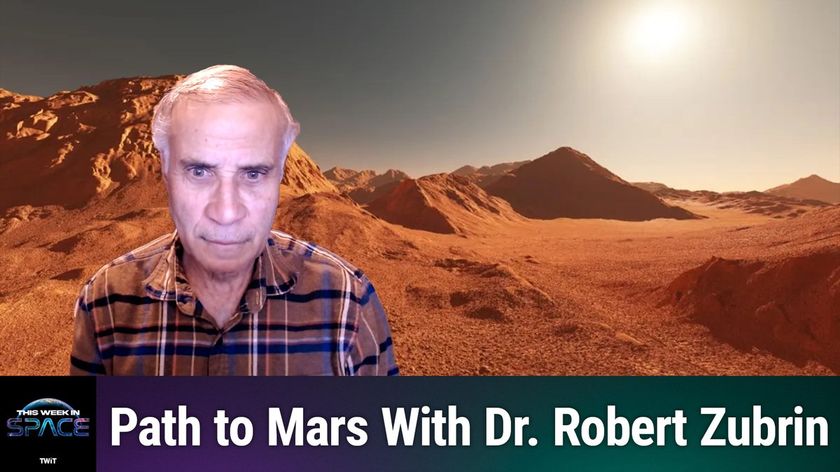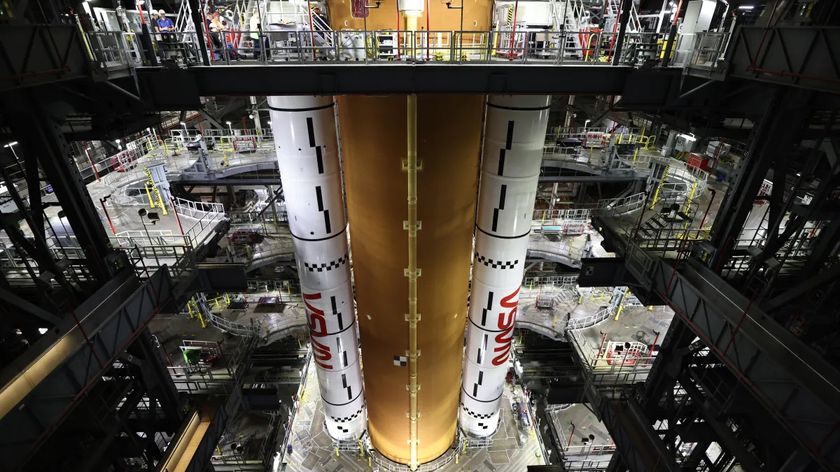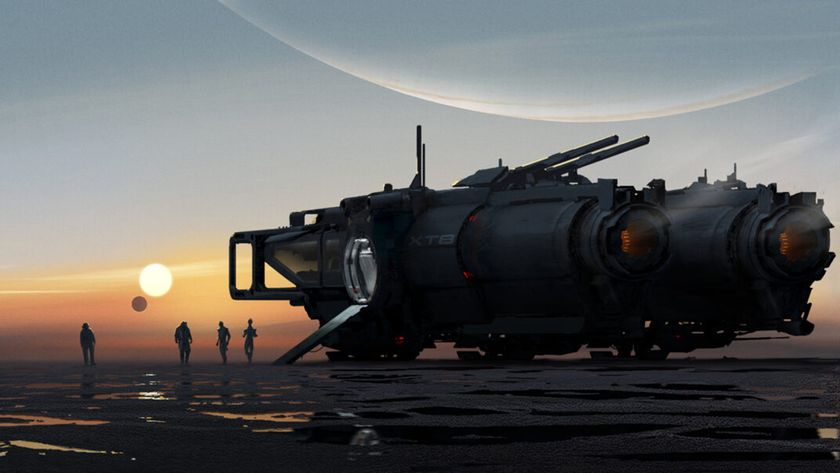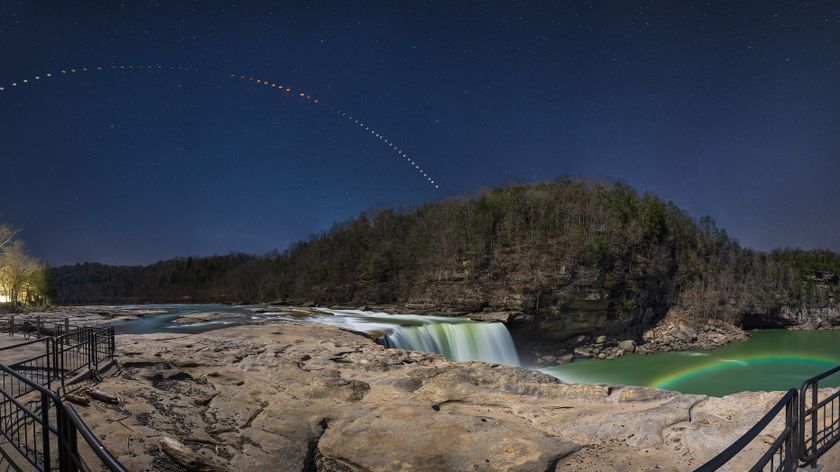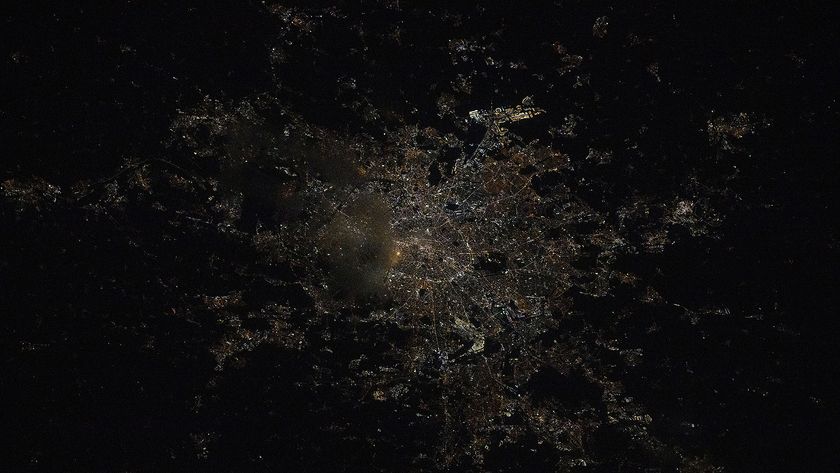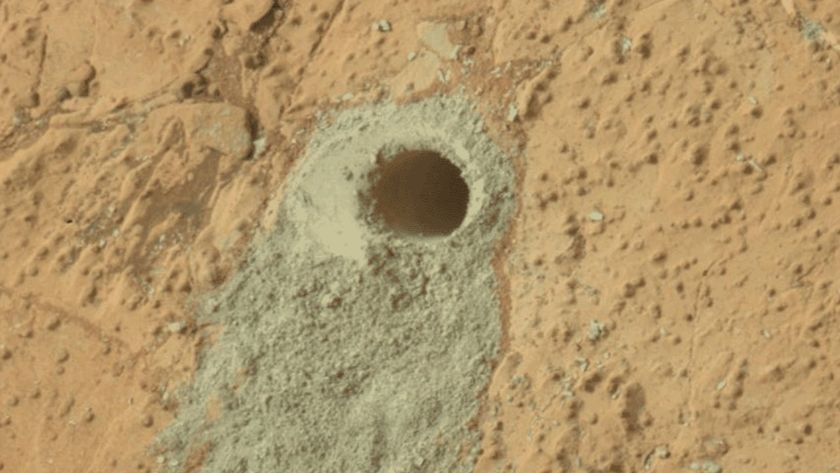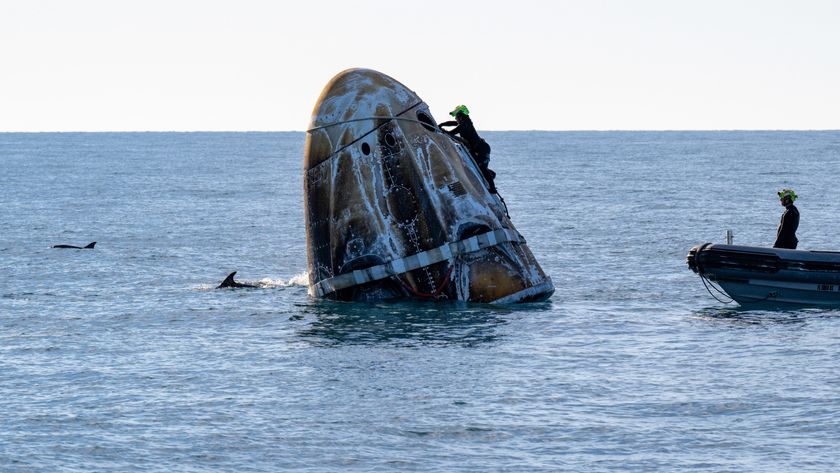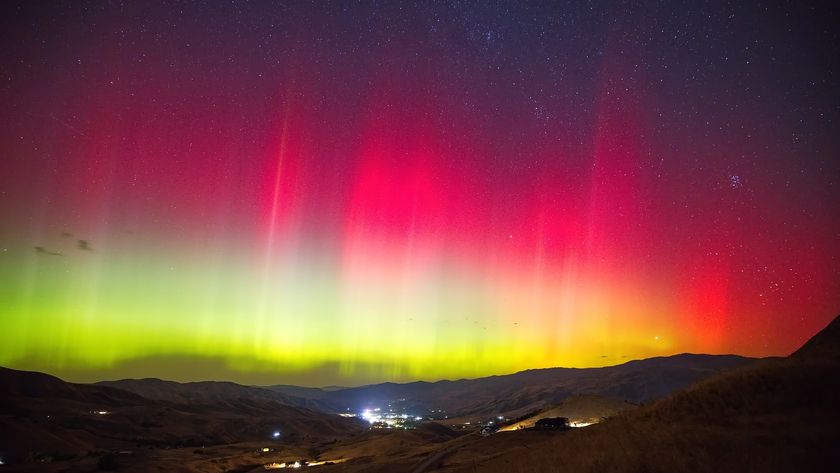'Life' Brings Alien Terror to the International Space Station
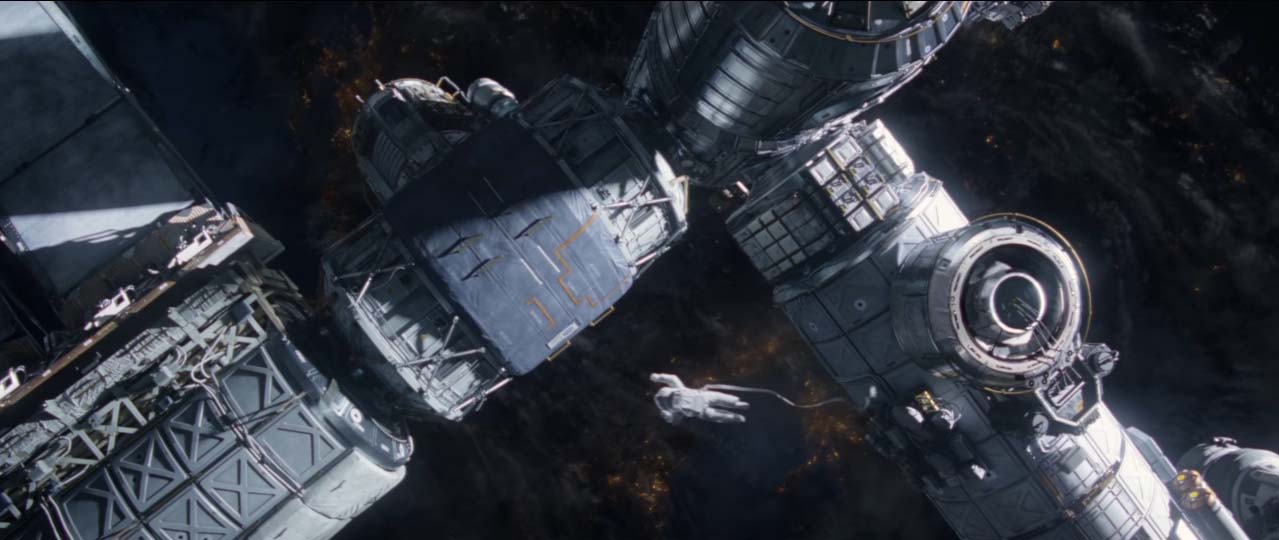
No science-fiction movie that takes place at the International Space Station has been quite as terrifying as "Life," a new space thriller that comes out in theaters today (March 24).
In the film, a Mars sample-return mission delivers the first proof of alien life to a group of astronauts at the International Space Station (ISS). What is at first a harmless, single-celled organism sealed inside a box in the lab grows bigger, stronger, smarter and bloodthirsty. When it breaks out of its container and comes after the astronauts, all hell breaks loose. ['Life' Movie Brings Terrifying Space Thrills (Photo Gallery)]
The all-star cast who play the astronauts in "Life" do not disappoint. Jake Gyllenhaal stars as a doctor who has spent more than 473 days aboard the ISS. Rebecca Ferguson plays a microbiologist whose job it is to protect everyone at the station and on Earth from possible contamination by the alien. Ryan Reynolds plays the role of a spacewalk specialist and provides some necessary comedic relief to this gruesome story.
The plot of "Life" is a bit of a mashup between the movies "Gravity" and "Alien." Just like in the "Alien" saga, the extraterrestrial in "Life" (which is nicknamed Calvin after school children on Earth won a naming contest) is out to kill every living thing aboard the spacecraft — in this case, the ISS. As the astronauts fight for their lives, they demolish the ISS. Though Calvin is the reason for their panic, the astronauts create more problems trying to kill it.
At times, the astronauts do things that would be considered foolish in real life, such as using fire to try to kill Calvin. (Starting fires is strictly forbidden at the ISS.) However, watching Ryan Reynolds blast flames at an octopus-like monster while chasing it around the ISS was worth the slight technical inaccuracy.
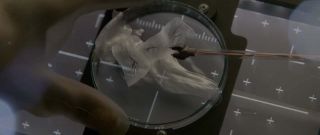
While the film is more of a horror flick than a science-driven narrative about extraterrestrial life and the International Space Station, there's plenty of real space science throughout the story to keep even hard-core space geeks entertained. The ISS is accurately and brilliantly rendered, and space-savvy viewers may recognize some of its features, such as the Canadarm robotic arm, the Cupola window and the docked Soyuz crew capsules.
Despite the superb acting and production that went into the making of this film, the story left me feeling a bit unsettled and unsatisfied near the end. For a group of highly intelligent astronauts at the space station, the astronauts made a lot of bad decisions that only make matters worse. I would have expected better from a group of trained professionals with "the right stuff." Then again, it's hard to guess how astronauts in the real world would deal with a situation as crazy as this. After all, they are still humans.
Get the Space.com Newsletter
Breaking space news, the latest updates on rocket launches, skywatching events and more!
Overall, the film is worth a watch for anyone who's into space, horror, or both. But if you're expecting a heroic story of six brave astronauts who save the day, you might be disappointed with the ending.
"Life" is rated R (for violence, gore, terror and profanity) and opens in theaters nationwide today (March 24).
Email Hanneke Weitering at hweitering@space.com or follow her @hannekescience. Follow us @Spacedotcom, Facebook and Google+. Original article on Space.com.
Join our Space Forums to keep talking space on the latest missions, night sky and more! And if you have a news tip, correction or comment, let us know at: community@space.com.

Hanneke Weitering is a multimedia journalist in the Pacific Northwest reporting on the future of aviation at FutureFlight.aero and Aviation International News and was previously the Editor for Spaceflight and Astronomy news here at Space.com. As an editor with over 10 years of experience in science journalism she has previously written for Scholastic Classroom Magazines, MedPage Today and The Joint Institute for Computational Sciences at Oak Ridge National Laboratory. After studying physics at the University of Tennessee in her hometown of Knoxville, she earned her graduate degree in Science, Health and Environmental Reporting (SHERP) from New York University. Hanneke joined the Space.com team in 2016 as a staff writer and producer, covering topics including spaceflight and astronomy. She currently lives in Seattle, home of the Space Needle, with her cat and two snakes. In her spare time, Hanneke enjoys exploring the Rocky Mountains, basking in nature and looking for dark skies to gaze at the cosmos.
